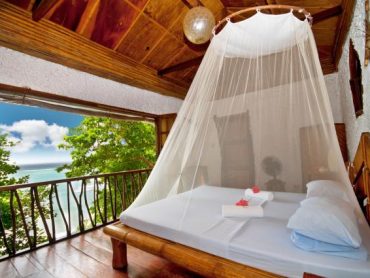Canada Heats Up the War With Airbnb
North of the border, the Hotel Association of Canada (HAC), headed by Executive Director Susie Grynol, is taking a proactive approach to curbing multiple Airbnb listings. In a recent interview, Ms. Grynol elaborated on a three-prong approach to dealing with the increasing pressure that Airbnb (and other internet-based lodging companies) are putting on our industry.
Step One: Facts Are Knowledge
The first step in this new program was the commissioning of an independent study to understand the depth of the issue and to get real data. Commissioned by HAC, and in association with CBRE, this comprehensive review examines the impact of Airbnb on both a national basis and as an individual assessment of the country’s top eleven markets. You can download a copy of the study at: https://www.fairrules.ca/index.php/research/
As highlights, the study shows that only 17% of all Airbnb revenue is from true ‘home sharing’, with the bulk (83%) coming from the rental of a unit without the owner present. It also identifies that multi-unit hosts now comprise 30% of total revenue and represent the fastest growing segment. Lastly and most importantly, the research not only identifies the potential tax opportunity from equalized treatment with traditional accommodations, but also stresses the importance of jobs generated directly from the hotel industry.
I applaud HAC for investing in a study of this magnitude, as it provides a solid benchmark for an objective look at shared lodging space.
Step Two: Advocacy
With a comprehensive review, HAC is now making the necessary steps to present this data to legislators, at the city, provincial (state) and national (federal) levels. The first step in this program is a series of meetings with local tourism and hotel associations. Key hotel industry leaders are also being engaged to ensure that the key messages are consistent and unequivocal. The idea is to galvanize all levels of government into action, focusing on the tax opportunity, jobs at stake within the sector and the pressure that Airbnb places on local neighborhoods or municipalities.
HAC has planned a comprehensive program of parliamentary meetings, social media and press coverage. They have also created a website (fairrules.ca) where all this information is laid out for both the legislator as well as the public. HAC also plans to monitor and support activities as they are taken by local councils. The broader notion here that, as of now, hotels represent a minor voice in the greater political game, but that shouldn’t be the case and we need our plight to be understood if we are to be adequately protected against unfair competitors.
Step Three: Public Awareness
Bringing all levels of government together as well as corporate hotel executives is important. But a groundswell of citizens who express concerns are bound to generate significant pressure towards legislative action. The fabric of the community is the issue being raised. Here, HAC is putting forward reasonable arguments on safety issues, rental pressures and jobs. The plan is to utilize hotel employees and grassroot activities such as presentations to condominium boards and apartment dwellers.
In my mind, this is a daunting task, with results that are not going to bear fruit overnight. But nevertheless, this is highly commendable and with merit long-term awareness gains as some of the lasting effects of alternate lodgings can be quite severe, especially with regard to a lack of rental units in a given area and direct loss of jobs.
Overall, I’m impressed with HAC’s leadership approach. And while the stateside world is different than that in Canada, HAC sets a standard at the national level that AH&LA is pursing at the state and local level. In the end, though, the time to act is now before we reach a tipping point of no return where we permanently lose too many customers to alternate lodgings to ensure a healthy future for the hotel industry.
(Article by Larry Mogelonsky, originally published in HotelsMag on October 20, 2017)




